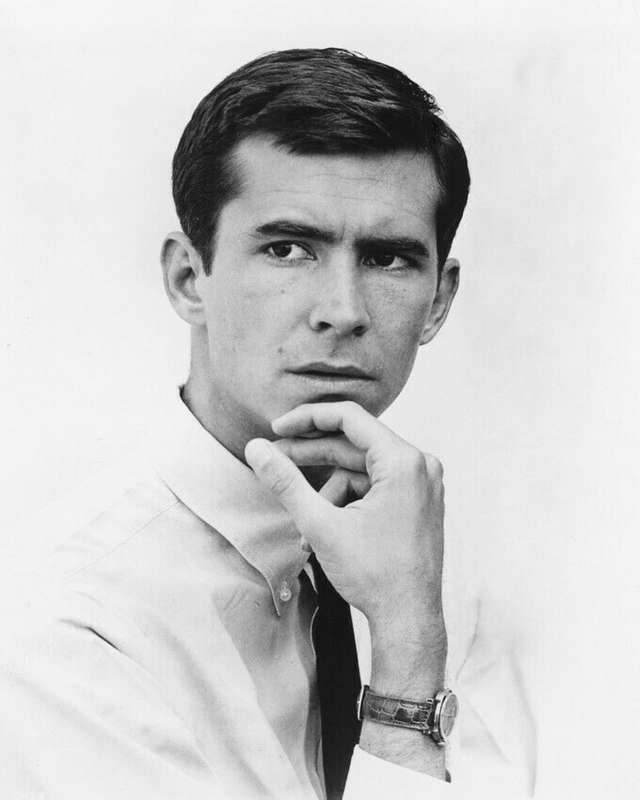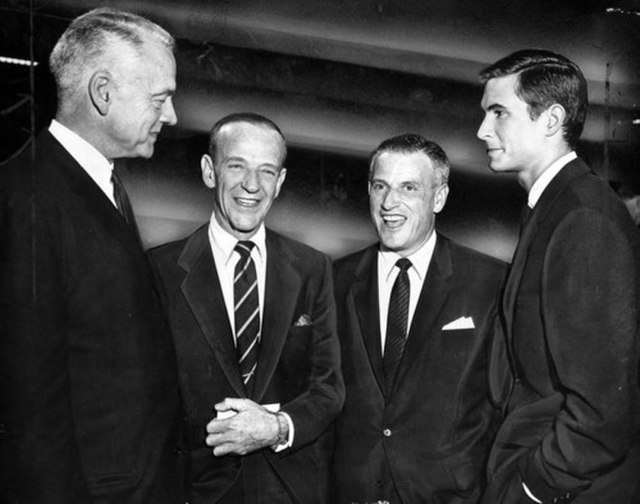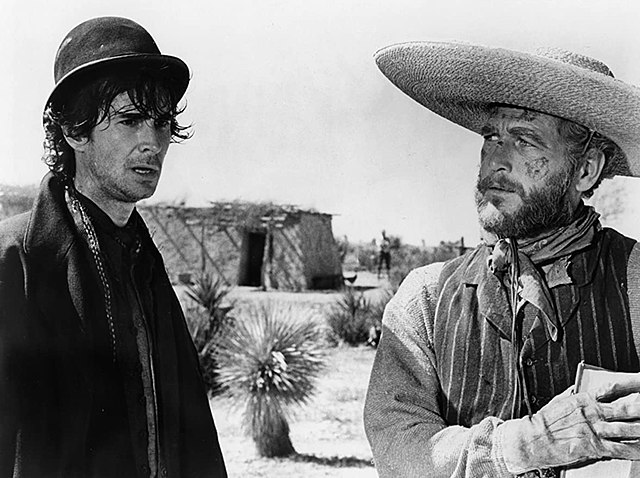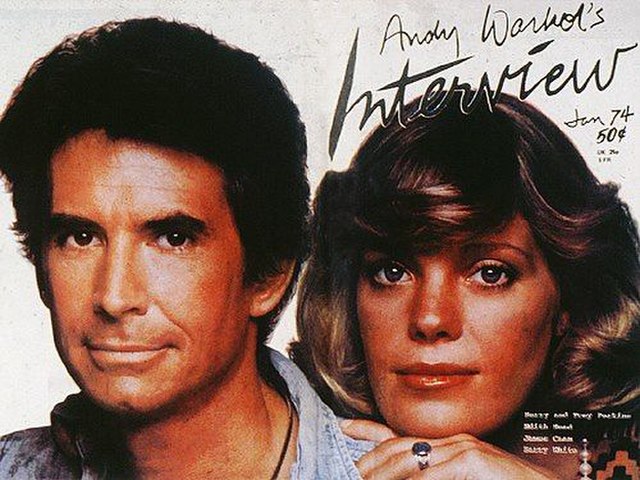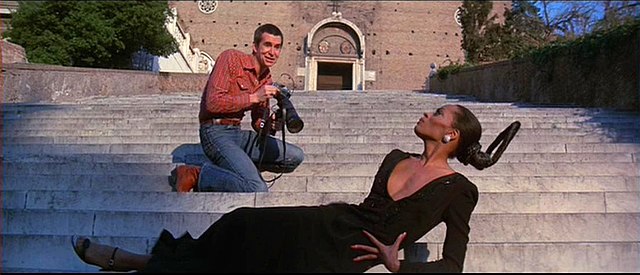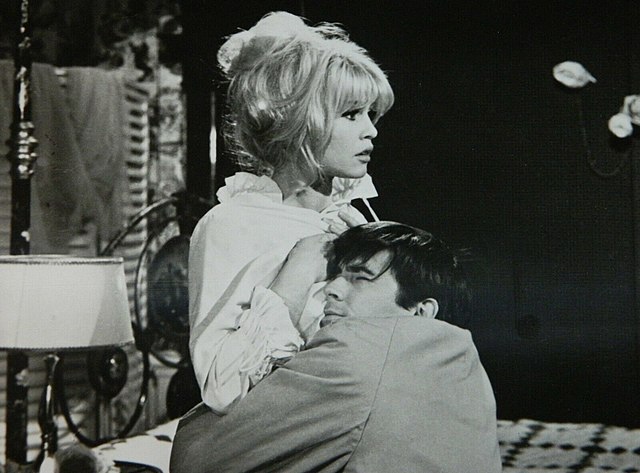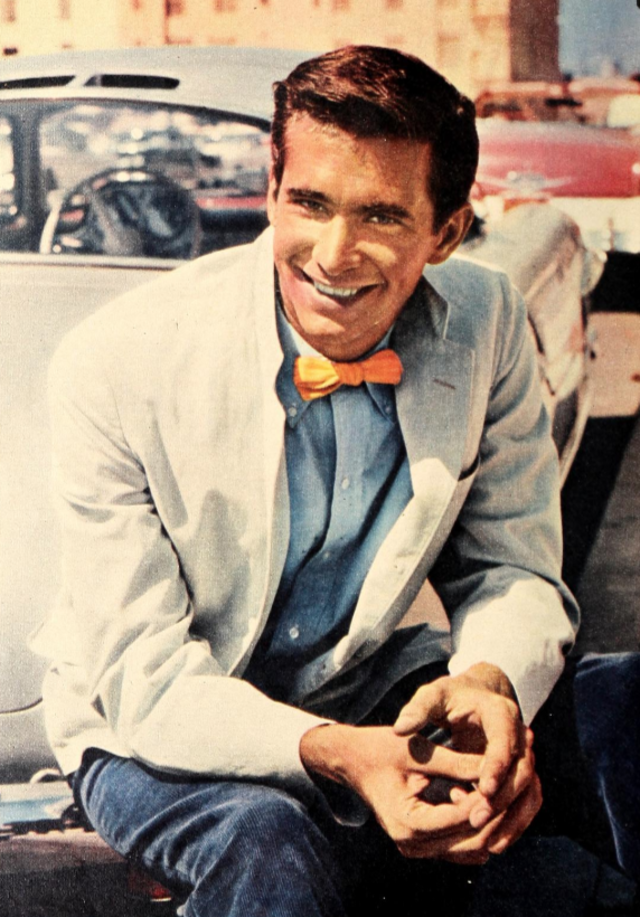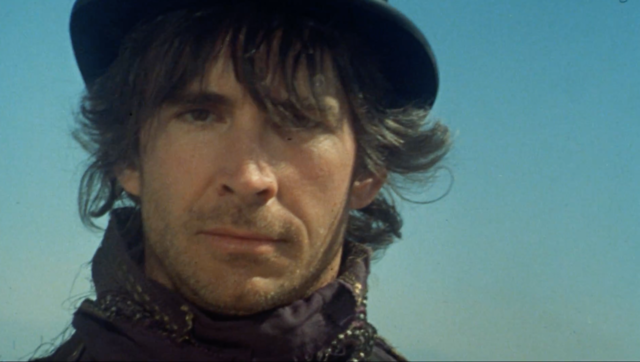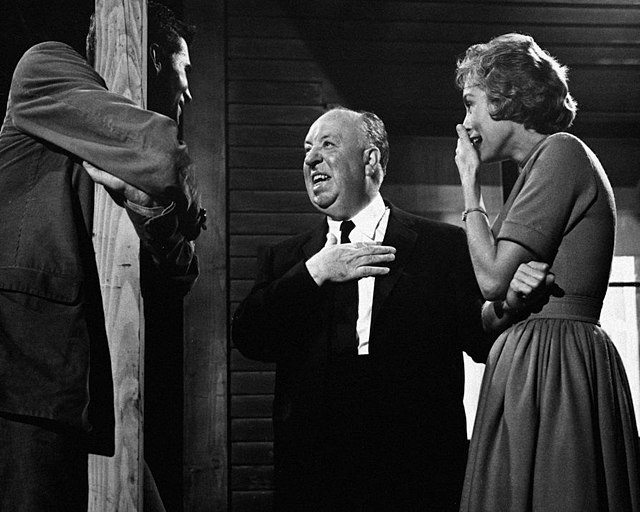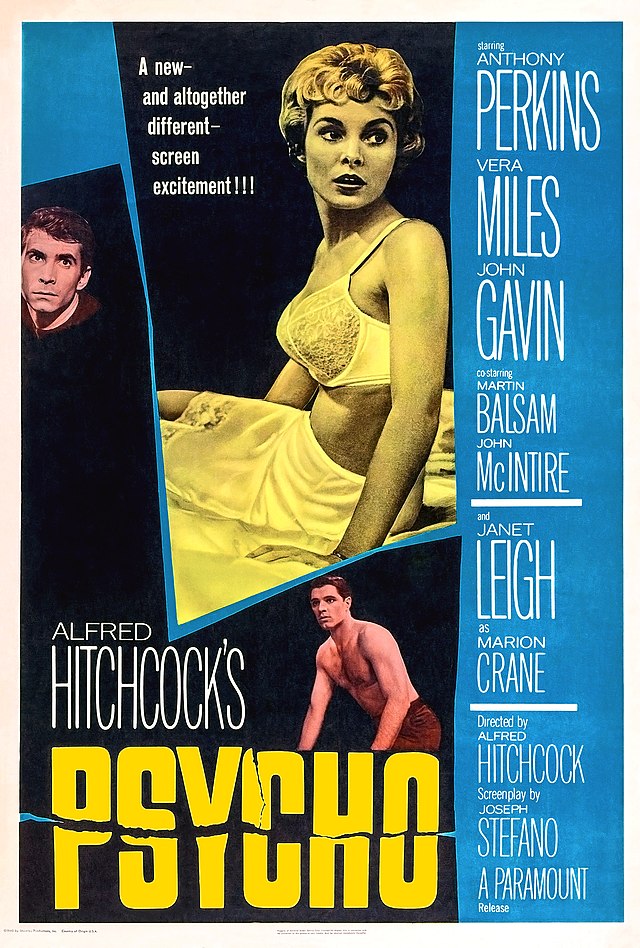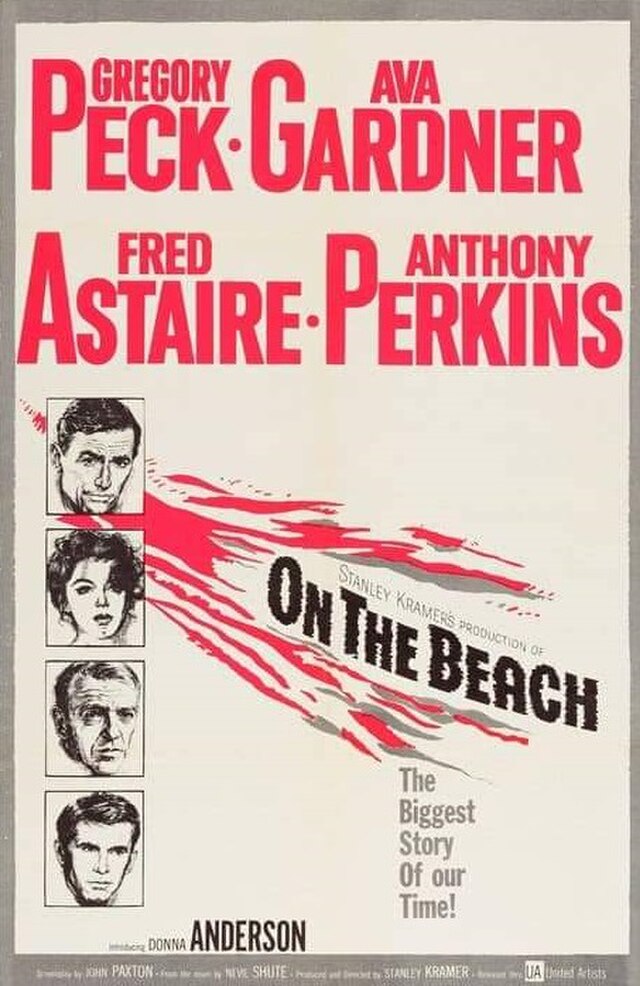Anthony Perkins
back| Full Name | Anthony Perkins |
| Stage Name | Anthony Perkins |
| Born | April 4, 1932 |
| Birthplace | New York City, New York, USA |
| Died | September 12, 1992 |
| Buried | Ashes scattered at an undisclosed location (per his family's wishes) |
| Married to | Berry Berenson (m. 1973) |
| Children | Oz Perkins (b. 1974) and Elvis Perkins (b. 1976) |
| Notable films | Psycho (1960) - Friendly Persuasion (1956) - Fear Strikes Out (1957) - The Trial (1962) - Psycho II (1983) |
Anthony Perkins
The Master of Quiet Complexity
Anthony Perkins (1932–1992) was an American actor best known for his iconic role as Norman Bates in Alfred Hitchcock's Psycho (1960).
Perkins gained fame for portraying emotionally complex and troubled characters, excelling in roles that required vulnerability and intensity. While Psycho cemented his legacy, it also led to typecasting, although he demonstrated range in films like Fear Strikes Out (1957) and Pretty Poison (1968).
Off-screen, he was a private person, marrying photographer Berry Berenson in 1973 and fathering two sons.
Related
Anthony Perkins (1932 – 1992)
Biography and Movie Career
Anthony Perkins was born on April 4, 1932, in New York City, into a prominent theatrical family. His father, Osgood Perkins, was a well-known stage and film actor, and his mother, Janet Esselstyn Rane, was a homemaker. Unfortunately, Perkins' relationship with his father was brief, as Osgood Perkins passed away when Anthony was just five years old. This early loss profoundly impacted the young boy, casting a shadow over his childhood and influencing his future emotional life. Perkins was reportedly a shy and introverted child, traits that would later manifest in his acting, particularly in his portrayal of vulnerable and psychologically complex characters.
Education and Early Career
Perkins attended the elite Brooks School and Browne & Nichols School before briefly enrolling at Rollins College in Florida and later Columbia University in New York. However, his passion for acting eventually eclipsed his academic pursuits. In 1953, at the age of 21, he made his Broadway debut in the play Tea and Sympathy, which opened doors to the world of film.
His big-screen debut came in 1955 with The Actress, but it was his role in Friendly Persuasion (1956) that brought him widespread recognition. Perkins' portrayal of a conflicted young Quaker in the film earned him an Academy Award nomination for Best Supporting Actor. The sensitive, introspective roles he played in the late 1950s established him as a rising star in Hollywood.
Breakthrough Role: Norman Bates
The defining moment of Anthony Perkins' career came in 1960 when Alfred Hitchcock cast him as Norman Bates in Psycho. His portrayal of the deeply disturbed motel owner, who harbors a dark secret, became iconic. Perkins brought an eerie vulnerability and quiet menace to the role, creating one of cinema’s most memorable characters. While Psycho achieved critical and commercial success, the role of Norman Bates came to define and haunt Perkins for the rest of his life.
Though he struggled to escape the typecasting that followed Psycho, Perkins continued to showcase his talent in a variety of roles. He appeared in films like The Trial (1962), directed by Orson Welles, and Pretty Poison (1968), demonstrating his range as an actor. Still, it was Norman Bates that the public associated him with, despite his efforts to break free from the psychological thriller mold.
Personal Life and Relationships
Anthony Perkins' personal life was complex and often kept out of the public eye, particularly his sexuality, which he carefully concealed due to the era’s societal norms. Throughout the 1950s and 1960s, he had relationships with several men, including dancer and choreographer Grover Dale and actor Tab Hunter. However, Perkins did not publicly acknowledge these relationships, as homosexuality was stigmatized during that time, and coming out could have jeopardized his career.
In the early 1970s, Perkins met and fell in love with photographer and actress Berry Berenson, the younger sister of actress Marisa Berenson. The two married in 1973, a surprising move to many who knew Perkins' history with men. Despite the speculation, their marriage was loving and lasted until Perkins' death. The couple had two sons: Oz Perkins, born in 1974, who later became an actor and director, and Elvis Perkins, born in 1976, a musician and singer-songwriter.
Passions and Hobbies
Perkins was known to have many interests outside of acting. He had a love for music and even recorded several pop albums in the 1950s. His voice, soft and melodic, showcased his diverse talents and added to his appeal as a rising star.
In addition to music, Perkins had a deep passion for writing and directing. In 1986, he directed Psycho III, an attempt to both continue the story of Norman Bates and take control of the character that had long overshadowed his career. The film was met with mixed reviews but was a significant moment for Perkins, as it allowed him to explore the creative process from behind the camera.
Later Years and Struggles
Despite his continued work in film, television, and theater, Perkins’ career faced challenges in the 1970s and 1980s. He reprised the role of Norman Bates in Psycho II (1983), Psycho III (1986), and Psycho IV: The Beginning (1990), each time adding depth to the character and reaffirming his place in cinematic history.
However, beneath the professional success lay a personal struggle that Perkins kept hidden from the public. In the early 1980s, he contracted HIV, a diagnosis that he kept secret for nearly a decade. At the time, the AIDS crisis was wreaking havoc, particularly within the entertainment industry, but the stigma around the disease was so strong that Perkins chose to maintain his privacy.
Death and Legacy
On September 12, 1992, Anthony Perkins died at the age of 60 from AIDS-related pneumonia at his home in Hollywood. Just a day before his death, he released a statement through his publicist expressing his deep sadness over the many lives lost to the disease and his hope for an end to the suffering. His death marked a somber end to a career that had begun with so much promise and creativity.
Perkins’ wife, Berry Berenson, survived him, but she tragically died nine years later in the September 11, 2001 terrorist attacks, as she was a passenger on American Airlines Flight 11, which struck the North Tower of the World Trade Center.
Anthony Perkins left behind a legacy that is complex and enduring. While forever linked to the role of Norman Bates, he was an actor of great depth, with a career that spanned several decades and genres. His ability to portray the tortured psyche of his characters with vulnerability and nuance made him one of the most intriguing and talented actors of his generation. His personal struggles, both with his identity and with illness, remained largely hidden during his lifetime, adding to the enigmatic nature of his life. Today, he is remembered not only for his work in Psycho but also for his broader contributions to film, music, and theater.
Anthony Perkins in The Tonight Show with Johnny Carson
Vulnerable Acting Style of Anthony Perkins
Anthony Perkins’ acting style was marked by a combination of vulnerability, intensity, and a quiet, often unsettling presence. His performances were layered with psychological depth, making him one of the most intriguing actors of his generation. Perkins had the ability to convey complex emotions through subtle gestures and understated dialogue, which allowed him to portray characters who were often isolated, conflicted, or struggling with internal demons.
Vulnerability and Sensitivity
One of the most distinctive elements of Perkins' acting style was his ability to project a deep sense of vulnerability. In his early roles, such as Friendly Persuasion (1956) and Fear Strikes Out (1957), Perkins played young men who were emotionally fragile and uncertain, often caught between societal expectations and their own inner turmoil. His slender frame, boyish looks, and gentle voice contributed to this sensitivity, making him well-suited for roles that called for a delicate or misunderstood character.
Perkins had a rare gift for making the audience empathize with his characters, no matter how flawed or disturbed they were. This trait became particularly prominent in his most famous role, Norman Bates in Psycho (1960). As Bates, he evoked sympathy even as he committed unspeakable acts, and much of this stemmed from Perkins’ ability to convey a childlike innocence coupled with a haunting loneliness. His portrayal of Norman’s awkwardness, coupled with fleeting moments of tenderness, made the character more tragic than purely villainous, drawing audiences into his psychological unraveling.
Intensity and Inner Turmoil
Perkins excelled at portraying characters with a simmering inner tension. His performances were often charged with a sense of suppressed emotion, which made his characters appear as though they were constantly on the verge of losing control. This intensity was never overt or melodramatic but rather conveyed through subtle shifts in body language, facial expressions, and vocal intonations.
In Fear Strikes Out, for example, his portrayal of real-life baseball player Jimmy Piersall, who suffers from a nervous breakdown, is a masterclass in conveying psychological strain. Perkins’ physicality in this role — his stiff movements, haunted eyes, and tremulous speech — created a portrait of a man slowly succumbing to the pressures placed upon him. This ability to express emotional conflict without resorting to overacting was a hallmark of Perkins' style and became a defining feature of many of his roles.
Quiet Menace
Perkins' most famous roles often explored the darker aspects of the human psyche, and he became known for his ability to convey a quiet menace beneath a seemingly ordinary exterior. His characters often appeared mild-mannered or unassuming, only for the audience to gradually realize that something much darker lay beneath the surface.
In Psycho, this quiet menace is central to his performance. As Norman Bates, Perkins played a character who, on the surface, seems like a shy and nervous young man, awkwardly charming and harmless. However, as the film progresses, subtle cues in Perkins’ performance — a twitch of the eye, a sudden shift in tone, or an unsettling pause — reveal Norman’s deeper instability and dangerous nature. Perkins mastered the art of transforming what appeared to be innocence into something deeply disturbing, creating tension by keeping the audience on edge.
In Pretty Poison (1968), he similarly plays a disturbed young man who convinces a high school girl to join in his delusions, creating an eerie sense of unpredictability. His charm, tinged with an underlying sense of danger, was often what made his characters so compelling — you were never quite sure what he would do next.
Emotional Complexity
Perkins thrived in roles that required emotional complexity. He often portrayed characters struggling with guilt, repression, or unhealed trauma, and he excelled at bringing those internal conflicts to the forefront without needing to express them verbally. His use of body language, especially his ability to appear tense and self-conscious, conveyed a world of inner torment. In many ways, Perkins was a master of understatement, often doing more with a glance or a slight hesitation than many actors could with a page of dialogue.
For example, in The Trial (1962), Perkins played Josef K., a man trapped in a surreal, nightmarish legal system without understanding what crime he has committed. His portrayal was not of an outwardly panicked man but of someone quietly unraveling under the weight of something he couldn’t comprehend. This kind of performance showed Perkins’ ability to channel complex emotions in a way that felt both realistic and disorienting.
Typecasting and Range
Despite being typecast in psychologically disturbed roles following Psycho, Perkins was a versatile actor. He demonstrated his range in films like Goodbye Again (1961), where he played a lovesick young man involved with an older woman, and The Trial, which allowed him to explore themes of paranoia and absurdity. Even in his later career, when he was primarily known for horror and thriller roles, Perkins found ways to bring new dimensions to characters who could have easily been one-dimensional villains.
For example, in the sequels to Psycho, particularly Psycho II (1983), Perkins revisited Norman Bates but infused him with an even deeper sense of pathos. Rather than simply playing the role as a continuation of the original, Perkins gave Norman a more nuanced portrayal — a man trying to rebuild his life while haunted by his past. His ability to layer his characters with emotional contradictions added depth to even the most unlikely roles.
Charisma and Charm
One often-overlooked aspect of Perkins’ acting style was his innate charisma. Even in darker roles, Perkins brought a certain charm to the screen that made his characters fascinating to watch. His awkwardness could be endearing, and his vulnerability made audiences care about his characters, even when they were deeply flawed. This charisma made it difficult to fully dislike characters like Norman Bates or Dennis Pitt in Pretty Poison. Perkins’ charm often masked the darker elements of his characters, making the eventual reveals of their disturbed nature all the more shocking.
Conclusion
Anthony Perkins’ acting style was marked by emotional depth, vulnerability, and an undercurrent of psychological tension. His ability to convey inner turmoil and conflict, often through subtle and nuanced performances, made him a standout actor in Hollywood. While he became synonymous with the role of Norman Bates, his career showcased a wide range of performances that reflected his skill at portraying complex, troubled, and often misunderstood characters. His quiet menace, coupled with his vulnerability and emotional sensitivity, created a unique and memorable acting style that continues to resonate in cinematic history.
Memorable Quotes from Anthony Perkins:
On Acting and His Craft:
- "I have learned more about love, selflessness, and human understanding from the people I have met in this great adventure in the world of theater than I could have ever dreamed possible."
This quote reflects Perkins' deep appreciation for the craft of acting and the personal growth it allowed him throughout his career.
- "It’s better to be in the house of a tyrant than out in the street."
This quote offers insight into his views on the controlled chaos of Hollywood, where he seemed to find safety in structure despite its challenges.
On Psycho and Norman Bates:
- "I have my own theory about Psycho. It has to do with the fact that there was a mind behind it. Alfred Hitchcock allowed you to create your own nightmares."
Perkins speaks about the genius of Hitchcock and how Psycho tapped into universal fears, letting the audience’s imagination fuel the terror.
- "The character I play, Norman Bates, has an infantile personality. He’s someone who’s never grown up. And I think there are more people like that in the world than we care to admit."
This quote reflects Perkins’ understanding of Norman Bates, offering a nuanced interpretation of the character’s emotional and psychological stuntedness.
- "I have learned more about Norman Bates than I ever wanted to know."
After being typecast as Norman Bates, Perkins candidly acknowledges the impact the role had on his career and identity.
On His Personal Life:
- "Rock Hudson let his publicist announce that he had AIDS, but he died a day later. I got up and made my announcement in the morning, and I didn’t die that afternoon. That was a big step."
Perkins made this remark in a 1992 interview, just days before his death, discussing his battle with AIDS and the importance of being open about his diagnosis in a time of great stigma.
On Fame and Hollywood:
- "Hollywood is a place where the stars twinkle until they wrinkle."
A witty observation about the fleeting nature of fame, showing Perkins’ awareness of the ephemerality of Hollywood stardom.
- "I’m the product of twenty years of planning. I was the next big thing, but nothing happened."
Perkins often felt ambivalent about the way Hollywood managed his career. This quote speaks to his frustrations with the industry and the expectations placed on him.
What Others said about Anthony Perkins
Alfred Hitchcock (Director of Psycho)
- "Tony Perkins has an extraordinary gift for projecting outwardly the character’s inner fears. He communicates with his eyes, his posture, his face. In Psycho, he became the personification of dread, not by playing Norman Bates as a monster, but by playing him as a human being who is deeply afraid."
Hitchcock admired Perkins' ability to humanize Norman Bates, making him relatable and tragic rather than simply villainous, which contributed to the enduring impact of Psycho.
Janet Leigh (Co-star in Psycho)
- "Anthony was one of the sweetest, most charming people I ever worked with. He was polite and professional, but there was always something vulnerable about him. You could feel that underneath the surface, which made his portrayal of Norman Bates so powerful."
Janet Leigh, who famously starred as Marion Crane in Psycho, spoke fondly of Perkins’ personality, describing his mix of charm and vulnerability as central to his most famous role.
Orson Welles (Director of The Trial)
- "Perkins had an extraordinary understanding of Kafka, perhaps more than anyone I’ve ever met. His performance in The Trial was unlike anything I’d ever seen — a delicate combination of fear, confusion, and pathos."
Orson Welles, who directed Perkins in The Trial, praised his intellectual depth and ability to grasp complex material, especially his interpretation of Kafka’s existential dread.
Tab Hunter (Actor and Friend)
- "Tony was extremely talented, sensitive, and painfully shy. He was a very private person, but I think that’s why his performances were so special. He could show you things about vulnerability and isolation that most people would hide."
Tab Hunter, an actor and close friend of Perkins, acknowledged the actor’s personal sensitivity and how it translated into the depth of his performances.
Norman Lear (Television Producer and Writer)
- "Anthony Perkins was one of the most intelligent actors I’ve ever worked with. He had an incredible emotional range and could go from sweetness to something much darker in an instant. That duality is what made him such a fascinating actor to watch."
Norman Lear highlighted Perkins’ ability to balance emotional complexity, praising his nuanced performances that made him stand out in Hollywood.
Jeff Fahey (Co-star in Psycho III)
- "Working with Tony on Psycho III was incredible. He was kind and generous, but also so meticulous about the details of his character and the film. He had a real vision, especially as a director, and watching him bring Norman Bates to life again was unforgettable."
Fahey, who starred in Psycho III with Perkins, spoke highly of his dedication as both an actor and director, admiring his passion and attention to detail.
Stephen Sondheim (Composer and Friend)
- "Tony was a true original. He had this quirky, funny side that not many people saw, but when he was comfortable, it would come out in the most surprising ways. He could be as witty as anyone in the room. His vulnerability is what made him a great actor, but his intelligence made him fascinating."
Composer Stephen Sondheim, who was a close friend of Perkins, described him as highly intelligent and humorous, a side not always visible in his public persona but deeply appreciated by those who knew him well.
Berry Berenson (Perkins' wife)
- "Tony was so complex and so deeply caring, and he felt things more deeply than anyone I’ve ever known. He carried a lot of weight on his shoulders, but when he loved, he loved fully. He was everything to me and to our children."
Berry Berenson, Perkins’ wife, described him as deeply emotional and caring, offering insight into the personal side of Perkins that remained largely hidden from public view.
Elvis Perkins (Son, Musician)
- "My father was a mysterious man to a lot of people, but to me, he was just Dad. He was gentle, kind, and loving, and I think people sometimes forget that behind the iconic roles was a real person who cared deeply about his family and his art."
Elvis Perkins, Anthony’s son, shared a personal reflection of his father, revealing the caring, familial side that contrasted with the troubled characters he portrayed on screen.
David Lynch (Director)
- "Anthony Perkins was a master at conveying both fragility and menace. Few actors have the ability to make you feel for a character who’s so disturbed, but Tony did it with an elegance and subtlety that was just amazing."
Director David Lynch, a master of psychological drama himself, admired Perkins for his unique ability to blend vulnerability and darkness in his performances.
Awards and Recognition
Academy Awards:
- 1957:
Nomination – Best Supporting Actor for Friendly Persuasion
- This was Perkins’ first and only Academy Award nomination. His role as Josh Birdwell, a sensitive and conflicted Quaker dealing with the complexities of the Civil War, earned him recognition for his nuanced portrayal. The film itself was widely acclaimed and nominated for six Academy Awards, including Best Picture.
Golden Globe Awards:
- 1957:
Win – Most Promising Newcomer – Male (shared with John Kerr and Paul Newman)
- Perkins received this award for his breakthrough performance in Friendly Persuasion, which established him as one of the most promising young talents of his generation.
- 1961:
Nomination – Best Actor in a Motion Picture – Drama for Goodbye Again
- Perkins was nominated for his role as Philip Van Der Besh, a young American man who falls in love with an older woman (Ingrid Bergman) in Paris. This performance highlighted his emotional depth and romantic sensitivity.
BAFTA Awards (British Academy of Film and Television Arts):
- 1958:
Nomination – Best Foreign Actor for Friendly Persuasion
- Perkins’ portrayal of Josh Birdwell earned him international recognition with this nomination from the British film industry.
- 1961:
Nomination – Best Foreign Actor for Psycho
- Perkins' performance as Norman Bates in Alfred Hitchcock’s Psycho garnered significant attention, and this BAFTA nomination underscored the global impact of his chilling portrayal of the disturbed motel owner.
Cannes Film Festival:
- 1962:
Nomination – Best Actor for Psycho
- Although Perkins did not win the Best Actor award, Psycho was screened at the Cannes Film Festival, and his performance was critically lauded.
David di Donatello Awards (Italy):
- 1961:
Win – Best Foreign Actor for Goodbye Again
- This prestigious Italian award recognized Perkins' performance in Goodbye Again, which was well received in Europe. His sensitive portrayal of unrequited love resonated with international audiences.
National Board of Review:
- 1968:
Win – Best Actor for Pretty Poison
- Perkins was awarded for his performance as Dennis Pitt, a mentally unstable young man who drags a high school girl into his dangerous delusions. The film was a dark comedy-thriller, and Perkins' performance was highly praised for its complexity and dark humor.
Other Notable Recognitions:
Saturn Awards (Academy of Science Fiction, Fantasy & Horror Films):
- 1987:
Nomination – Best Actor for Psycho III
- Perkins, who also directed Psycho III, was nominated for his reprise of Norman Bates. His performance in this sequel added more depth to the character and showed his ability to portray Bates with continued pathos and tension.
Fantasporto International Fantasy Film Awards:
- 1987:
Win – Best Actor for Psycho III
- Perkins was recognized for his performance as Norman Bates, as well as his direction of Psycho III at this international film festival in Portugal. The film had mixed reviews, but his performance remained strong enough to receive accolades.
TV Land Awards:
- 2006:
Nomination – Most Memorable Scream for Psycho
- Even decades after its release, Psycho continued to receive recognition, particularly for the iconic shower scene and Perkins' role in creating one of cinema’s most terrifying moments.
Movies with Anthony Perkins
1950s:
1953:
- The Actress: Perkins made his film debut in this drama about the early life of writer Ruth Gordon. The story follows a young woman determined to become an actress, despite opposition from her father.
1955:
- Friendly Persuasion: Perkins played the sensitive and pacifist son of a Quaker family in Indiana during the Civil War. His performance earned him an Academy Award nomination for Best Supporting Actor.
1957:
- The Lonely Man: Perkins starred alongside Jack Palance as a young man estranged from his father, a gunslinger trying to reconcile their relationship in the Old West.
- Fear Strikes Out: In a notable performance, Perkins portrayed Jimmy Piersall, a baseball player who struggles with mental illness and the pressures from his overbearing father.
1958:
- The Tin Star: Perkins played a young, inexperienced sheriff who is mentored by a hardened bounty hunter (Henry Fonda) in this Western.
- Desire Under the Elms: Adapted from the Eugene O'Neill play, Perkins played a young man who falls in love with his father’s new wife, setting off a tragic chain of events.
1959:
- Green Mansions: Perkins starred opposite Audrey Hepburn in this romantic adventure set in the jungles of Venezuela, where he plays a young man searching for gold and vengeance but falls in love with a mysterious woman.
- On the Beach: In this post-apocalyptic drama, Perkins plays a naval officer in Australia who, along with others, faces the inevitable end of humanity after a nuclear war.
1960s:
1960:
- Psycho: Perkins delivered his most iconic performance as Norman Bates, the psychologically disturbed owner of the Bates Motel, in Alfred Hitchcock’s legendary thriller. The film's famous twist and chilling performance secured its place in cinematic history.
1961:
- Goodbye Again: A romantic drama in which Perkins played a young man who falls in love with an older woman (Ingrid Bergman) in Paris, though she remains attached to her lover.
1962:
- The Trial: Directed by Orson Welles, this adaptation of Franz Kafka’s novel featured Perkins as Josef K., a man caught in a nightmarish legal system without knowing what crime he’s accused of.
1964:
- The Fool Killer: A Civil War-era drama where Perkins plays a drifter who befriends a young boy and tells him eerie stories, one of which might be real.
1965:
- The Glory Guys: A Western where Perkins plays a soldier involved in a doomed military campaign, similar to Custer's Last Stand.
- Ten Days' Wonder: Perkins stars in this French mystery thriller, directed by Claude Chabrol, about a philosopher drawn into a strange conspiracy surrounding his former pupil.
1966:
- Is Paris Burning?: Perkins had a minor role in this war epic about the liberation of Paris from Nazi occupation during World War II.
1968:
- Pretty Poison: Perkins played a mentally disturbed young man who convinces a high school girl to help him in his fantasies, only for things to spiral dangerously out of control.
1969:
- The Madwoman of Chaillot: In this whimsical fantasy, Perkins played a young man caught up in a battle between the eccentric “madwoman” of Paris (Katharine Hepburn) and corrupt corporate powers.
1970s:
1970:
- Catch-22: Perkins played a military chaplain in this dark, satirical adaptation of Joseph Heller’s novel, which examines the absurdities of war through the experiences of World War II soldiers.
1972:
- The Life and Times of Judge Roy Bean: A Western comedy where Perkins had a supporting role as a clergyman witnessing the legendary lawlessness of the Old West.
1974:
- Mahogany: In this romantic drama, Perkins played a troubled fashion photographer who becomes obsessed with Diana Ross’s character, a rising fashion designer and model.
1975:
- Lovin' Molly: This period romance drama sees Perkins as one of two men vying for the affection of a free-spirited woman in a small Texas town over several decades.
1976:
- Murder on the Orient Express: In the famous Agatha Christie mystery, Perkins played Hector MacQueen, one of the passengers on the train implicated in the murder plot investigated by Hercule Poirot.
1978:
- Remember My Name: A psychological drama where Perkins plays a man whose life is disrupted by the arrival of his vengeful ex-wife, recently released from prison.
1979:
- North Sea Hijack: A British action film in which Perkins plays a villain plotting to hijack an oil rig.
1980s:
1980:
- The Black Hole: Perkins starred in this sci-fi adventure as a scientist aboard a spaceship that discovers a black hole and a mysterious, dangerous station orbiting it.
1981:
- Winter Kills: Perkins had a supporting role in this political thriller about the cover-up of a presidential assassination.
1983:
- Psycho II: Perkins reprised his role as Norman Bates in this sequel to Psycho, where Norman is released from a mental institution, but his past continues to haunt him.
1986:
- Psycho III: Perkins not only reprised the role of Norman Bates but also directed this third installment of the Psycho series, where Norman’s fragile hold on sanity begins to unravel again.
1987:
- Edge of Sanity: A horror film where Perkins plays a dual role, blending elements of Dr. Jekyll and Mr. Hyde and Jack the Ripper.
1989:
- Destroyer: Perkins appeared in this horror film set in a prison, where a notorious killer may not be as dead as people think.
1990s:
1990:
- Psycho IV: The Beginning: In this made-for-TV movie, Perkins played Norman Bates once again. This prequel explores the origins of Norman’s psychosis and the relationship with his domineering mother.
1991:
- The Naked Target (aka The Naked Face): Perkins starred in this psychological thriller about a psychoanalyst (Roger Moore) who becomes a target for murder and tries to solve the mystery.
1992:
- In the Deep Woods: A TV movie, and Perkins’ final role, in which he plays a detective investigating a series of murders linked to a woman’s circle of friends.

